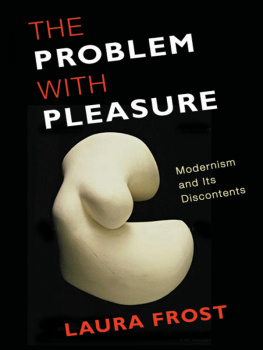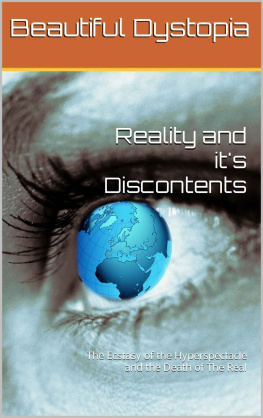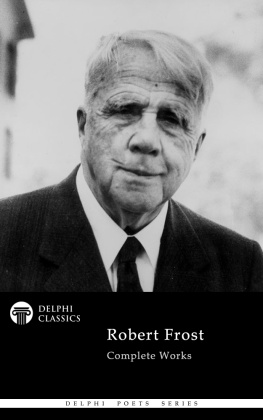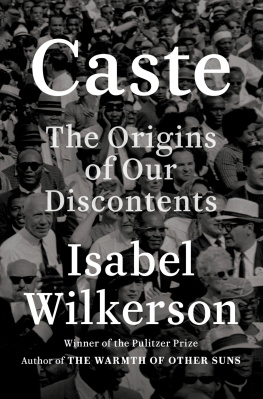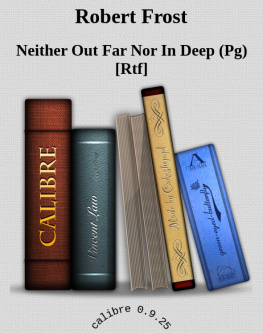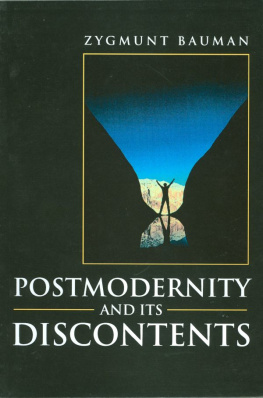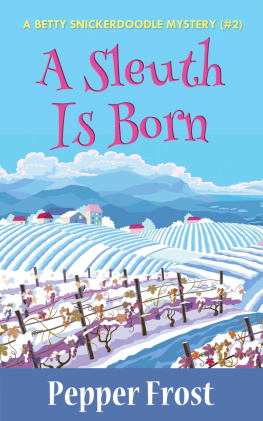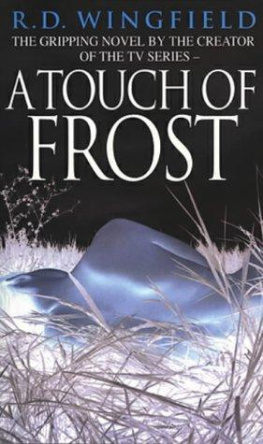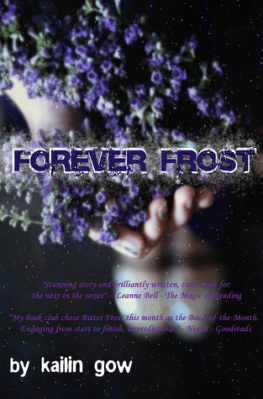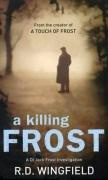THE PROBLEM WITH PLEASURE
THE PROBLEM WITH PLEASURE
MODERNISM AND ITS DISCONTENTS
Laura Frost
Columbia University Press

New York
Columbia University Press
Publishers Since 1893
New York Chichester, West Sussex
cup.columbia.edu
Copyright 2013 Columbia University Press
All rights reserved
E-ISBN: 978-0-231-52646-3
Versions of chapters 3, 4, and 6 were published as:
The Romance of Clich: E. M. Hull, D. H. Lawrence, and Interwar Erotic Fiction in Bad Modernisms, ed. Douglas Mao and Rebecca Walkowitz (Durham: Duke University Press, 2006), 94118.
Huxleys Feelies: The Cinema of Sensation in Brave New World, Twentieth-Century Literature 52, no. 4 (Winter 2006): 443473.
Blondes Have More Fun: Anita Loos and the Language of Silent Cinema, Modernism/modernity 17, no. 2 (April 2010): 291311.
Library of Congress Cataloging-in-Publication Data Frost, Laura Catherine, 1967
The problem with pleasure : modernism and its discontents / Laura Frost.
p. cm.
Includes bibliographical references and index.
ISBN 978-0-231-15272-3 (cloth : acid-free paper)
ISBN 978-0-231-52646-3 (electronic)
1. Modernism (Literature) 2. Pleasure in literature. I. Title.
PN56.M54F76 2013
809'.9112dc23 2012036521
A Columbia University Press E-book.
CUP would be pleased to hear about your reading experience with this e-book at .
Cover design by Noah Arlow. Cover art: The Museum of Modern Art/Licensed by SCALA / Art Resource, NY
References to websites (URLs) were accurate at the time of writing. Neither the author nor Columbia University Press is responsible for URLs that may have expired or changed since the manuscript was prepared.
Contents
This project began at Yale and was funded by a Senior Faculty Fellowship, a Morse Fellowship in the Humanities, and a series of A. Whitney Griswold Faculty Research Grants from the Whitney Humanities Center. A semester teaching in London was felicitous in many ways, not the least of which was a marvelous Bloomsbury book collection. I am grateful to my colleagues at YaleMichael Thurston, Elizabeth Dillon, Michael Trask, Nigel Alderman, Pericles Lewis, Tanya Agathocleous, Amy Hungerford, Sandy Welsh, Ruth Yeazelland my students there. Rebecca Walkowitz and Doug Maos invitation to join their band of bad modernists was an early impetus for this project, and I thank them for their editorial input, which helped put me on the road to pleasure. John Paul Riquelme generously invited me to present parts of the book in their early stages, and those events (at the Modernist Studies Association, Modern Language Association, and Harvard Humanities Center Modernism Seminar) were also instrumental in defining the project. I am grateful to Lawrence Rainey for bringing my Anita Loos article to Modernism/modernity; Bryan Radley for his editorial skills; Gregory Robison for our exchange about cinema history; and Cari Beauchamp for sharing her knowledge of Anita Loos with me. My New School colleagues Dominic Pettman, Laura Liu, Carolyn Berman, Paul Kottman, Alex Chasin, Inessa Medhibovskaya, Oz Frankel, Michael Schober, Elaine Savory, and Jim Miller got me through the home stretch. Others read and/or inspired me along the way: Nico Israel, Sarah Cole, Clover Bachman, Yvonne McDevitt, Miranda Sherwin, Karen Gehres, Ron Rosenbaum, Chris Wiggins, Aya Horikoshi, Randi Saloman, Nancy Miller, David Damrosch, D. A. Miller, and Carol Siegel. Teri Reynolds is the kind of friend who will wake up in the middle of a jet-lagged nap to edit your paper on Gertrude Stein; she stepped in at other crucial moments. I am especially indebted to my anonymous readers at Columbia University Press, and to Philip Leventhal for his patience and intelligence in helping me shape the book. The best part of this process was writing for the members of my Modernist Ladies Auxiliary writing group, Celia Marshik and Allison Pease, whose brilliant readings are second only to their bibulous lunch camaraderie. Victoria Rosner is my constant reader and advisor; I thank her for her friendship, wit, and genius for figuring out what needs to be said. My parents unflagging enthusiasm and interest make academic work seem worthwhile. Finally, this book is for Chris, whose love, support, and IT triage have helped me rediscover the delights of creation and the allure of the left brain; and for Max, our in-house hedonist, whose untroubled relationship to pleasure constantly reminds me, in the words of Dr. Seuss, that:
These things are fun
And fun is good.
Pleasure is not always fun.
Lauren Berlant
In Jean Rhyss 1939 novel Good Morning, Midnight, the protagonist, who calls herself Sasha, is picked up by a male stranger on the Boulevard Arago during an evening walk. They go to a caf and drink Pernod: one, two. I feel like a goddess, she thinks. I want more of this feelingfire and wings. The man puts his hand on her knee and invites her back to his flat. Sasha doesnt particularly like him, but she remarks, Well, why not? When they walk out onto the street, she stumbles. Whats the matter? he asks. Have you been dancing too much? All you young women dance too much. Mad for pleasure, all the young people. Ah, what will happen to this after-war generation? I ask myself. What will happen? Mad for pleasure.
This is a comically flawed conclusion, as the man mistakes Sasha for a good-time girl, a shingled flapper out for thrills. Although Sasha is, in fact, eager to get drunk, she is poor, alone, and depressed, a broken marriage and a childs death in her past. She sleeps most of the time and contemplates chloroforming herself, were it not for the fact that her hotel board has been paid for the month. She lurches in the street not because she is giddy from dancing, but because she is hungry and drinks on an empty stomach. Sasha goes along with the stranger even though she describes the encounter as unhoped-for and quite unwanted (397). In the novels final act, when she leaves her hotel-room door propped open to invite a menacing neighbor into her bed, her pleasure is dubious by any conventional definition.
Rhyss transnational flneuse would seem to epitomize modern feminine cosmopolitanism, as a creature who orbits contemporary amusements (clubs and restaurants, the cinema, popular music, cocktails, and freely chosen sexual companionship), yet she is plagued by anxiety and alienation. Sashas decisions are not calculated to produce what most would recognize as bliss or joy. Rhyss narrative enacts Sashas erratic psychology through its fragmented form, shifting abruptly from one time frame and one scene to another, and dispensing with causality. Communication is cryptic; people are ciphers. On a local level, some individual scenes are poetic, playful, or witty, but the overall impression is one of disorientation and dislocation. Like Sasha, Rhyss reader lurches from one episode to the next, a succession of flights and drops, delight and mostly dysphoria.
Sashas companions conception of this after-war generation as mad for pleasure echoes stereotypes of the interwar period: Daisy Buchanan jazz babies drinking cocktails and dancing in sleek art deco dresses, swooning in the cinema or listening to the latest thing on the gramophone. Rhys subsumes these experiences into the landscape of malaise and depression through which her protagonist drifts. In other modernist texts from the periodan era preoccupied by the miseries of the past war and the impending rise of fascism as well as the exhilaration and anxiety of shifting gender roles and new sensory culturesembodied, direct, and easy pleasures have a dark side. Figured as a siren call, alluring and dangerous, they are both a compulsion and a disorder of the age. What would usually register as pleasure often becomes empty, dangerous, or even anhedonic. Well now thats done: and Im glad its over, T. S. Eliots typist in
 New York
New York
